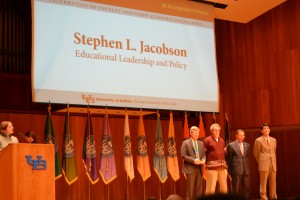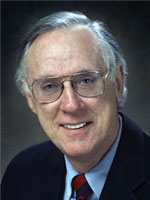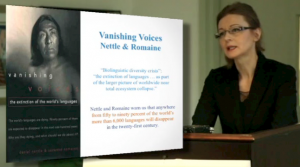The Educational Culture, Policy and Society (ECPS) program at the University at Buffalo focuses on the role that education, including but not limited to P – 16+, plays in the larger society. We pay special attention to institutions, policies and practices that facilitate individuals’ well-being and social and economic outcomes, as well as those that limit them. We focus on the links between educational institutions and broader social, cultural, political and economic forces.
Our faculty members have expertise in areas including the social psychology and sociology of education, global studies, and policy studies. We focus much of our research on underserved populations, including historically marginalized racial/ethnic groups in the United States such as African Americans, and Latino/a, and others who may not be proficient in English. We additionally direct our attention towards gender disparities in educational, social and economic opportunities, as well as among populations with limited financial resources.
ECPS additionally focuses on cross-national comparisons of educational policies and practices central to policymakers and school leaders around the world. These include reforms related to the teaching profession, teaching and learning, as well as key policy issues such as accountability, high-stakes testing, school choice, government support of education, and access to higher education for underrepresented groups.
Who is this program for?
ECPS is for anyone who is interested in the relationship between schooling (P – 16+) and social and economic forces and consequences in national and global context. Specific areas of focus include, but are not limited to:
- Differentiated curricula for students related to socioeconomic status, race/ethnicity, second language, gender, or national origin.
- Academic tracking that leads to differential access to knowledge and subsequent opportunities among student groups;
- Differential access to rigorous course content, especially in the areas of mathematics and science;
- Grade retention;
- Dropout and push-out patterns in secondary school that contribute to pipeline constriction;
- Discipline practices, accompanied by security measures in schools, that exclude student groups disproportionately, beyond that explained by students’ misbehavior or threat to others;
- Popular culture, youth culture, and schooling;
- Academic achievement, academic attainment, and school opportunity structures for varying groups in the population;
- Educational policies, practice and outcomes in cross-national perspective;
- Transitions from high school to college, including matriculation, persistence and graduation rates;
- Schooling and socioeconomic structures in new global circumstances.
I. ADMISSIONS
Admission decisions regarding the Ph.D. program are made twice per year (March 1st and November 1st). In addition to the completed online application, applicants must submit:
- Transcripts from any undergraduate and graduate institutions attended (Unofficial transcripts uploaded to your application are preferred)
- Graduate Record Exam (GRE) or Miller Analogies Test (MAT) scores
- Statement of career goals and objectives
- Writing sample
- Three academic letters of recommendation
- Admission interview upon department request
- $50.00 non-refundable application fee
II. CURRICULUM
All classes are chosen in consultation with the student’s advisor. A minimum of 72 hours is required to complete the PhD program, 12 of which can be dissertation credits.
The following courses are required, unless specifically waived by the advisor:
ELP 585 Sociological Bases in Education (3 credits)
ELP 544 Sociology of School Knowledge (3 credits)
ELP 593 Qualitative Research Methods (full year course; 6 credits)
ELP 589 Education and Socialization (3 credits)
ELP 566 Comparative and Global Studies in Education (3 credits)
ELP 590 Education and Social Stratification (3 credits)
ELP 599 Proposal Writing (3 credits)
A minimum of 6 credits quantitative/statistical methods (one full year). This requirement may be met through a combination of the below listed courses, pending advisor approval.
CEP 500 Fundamentals of Educational Research (3 credits) (This can be coupled with CEP
522 or CEP 532 to meet the full year requirement)
CEP 532 Understanding Statistical Research (3 credits)
CEP 522-523 Statistical Methods: Inference I and II (4 credits each course)
CEP 528 Hierarchical Linear Modeling: Multilevel and Longitudinal Data Analysis (3 credits)
CEP 527 Large Database Analysis
Recommended Electives:
ELP 592 American Education for International Students (3 credits) (as appropriate)
ELP 575 Education and Globalization (3 credits)
ELP 511 Comparative Higher Education (3 credits)
CEP 533 Doctoral Seminar: Topics in Education Policy (3 credits)
ELP 450 Language, Culture and Education in a Global Context (3 credits)
ELP 586 Educational Transitions P-20 (3 credits)
ELP 510 College Access and Choice in US (3 credits)
ELP 543 Economics of Education (3 credits)
III. QUALIFYING EXAMINATION
All students in ECPS must take a qualifying examination either December 15 (due January 15) or August 15 (due September 15). All coursework must be completed before the examination may be taken, and students may not sign up for dissertation credit hours until they have passed the exam. The qualifying examination is generally taken after completing the equivalent of two and one half full years of course work.
IV. ADVANCEMENT TO CANDIDACY
Upon completion of most of the course work, students will file a Ph.D. Application to Candidacy. The adviser, tentative dissertation committee, and the department chair must approve the application.
V. DISSERTATION RESEARCH
A minimum of 9 credit hours of ELP702 Dissertation Guidance is required.
FACULTY
Dr. Greg Dimitriadis (Ph.D., University of Illinois, Urbana/Champaign) is Professor of Educational Culture, Policy and Society and is interested in new ways of thinking about urban education and policies that serve urban youth. More specifically, he is interested in the potential value and importance of non-traditional educational curricula (e.g., popular culture), programs (e.g., arts-based initiatives), and institutions (e.g., community centers) in the lives of disenfranchised young people. His most recent work has dealt with the contemporary complexities of qualitative inquiry, including its history and philosophical and theoretical underpinnings, as well as the ways “theory” generated outside of the field of education can be brought to bear on the questions and concerns facing educational researchers and practitioners. His work has appeared in numerous journals, including Annals of the American Academy of Political and Social Science, Anthropology and Education Quarterly, British Journal of Sociology of Education, Journal of Education Policy, and Teachers College Record, among others. He is the author of Performing Identity/Performing Culture: Hip Hop as Text, Pedagogy, and Lived Practice (Peter Lang), and Friendship, Cliques, and Gangs: Young Black Men Coming of Age in Urban America (Teachers College Press, Columbia University). Dimitriadis’s Critical Dispositions: Evidence and Expertise in Education was awarded a Division B Outstanding Book Award, AERA, 2013. He has held visiting appointments at York University, The CUNY Graduate Center, Cardiff University, and Monash University.
Dr. Jeremy D. Finn (Ph.D., The University of Chicago) is a member of the program in Educational Culture, Policy and Society and Director of Programs in Educational Psychology and Quantitative Methods. He has been a Visiting Professor at Stanford University and the Ontario Institute for Studies in Education, held fellowships with the National Research Council, Educational Testing Service, National Center for Education Statistics, and the International Association for the Evaluation of Educational Achievement in Stockholm. Jeremy Finn’s research spans a number of policy areas. He was lead evaluator for Project STAR, the four-year study of the effects of class-size reduction in the elementary grades (K-3), and continues to analyze STAR data to understand the impact of small classes on students through young adulthood. Other areas in which he has made major contributions include the study of gender differences in educational outcomes, academic resilience among students at risk, school discipline and security measures, and student engagement and dropping out. His work on engagement and dropping out began with publication of the now-classic paper “Withdrawing from School” (Review of Educational Research, 1989). The article explains how dropping out and other forms of withdrawal from school have their roots in the earliest grades and result from myriad interactions between students and their schools. His papers have been published in a wide array of venues, including Journal of Applied Psychology, Harvard Educational Review, the 2006 government report “The Adult Lives of At-Risk Students: The Roles of Attainment and Engagement in High School”), and the Handbook of Research on Student Engagement. He was a member of the six-person panel to produce the recent U.S. Department of Education’s Dropout Prevention, and has received research grants from the U.S. Department of Education, the Spencer Foundation, and the William T. Grant Foundation.
Dr. Seong Won Han (Ph.D., University of Wisconsin-Madison) is an Assistant Professor of Educational Culture, Policy and Society. Her research interests include international and comparative education, gender inequalities in STEM, educational policy, and teacher quality. Using large-scale international surveys and student achievement data, her current project focuses on cross-national differences in occupational expectations for STEM careers among students in a wide range of nations. She also investigates the factors that support improvement of instruction and student outcomes in urban public schools in the United States, with specific focus on how comprehensive school reform efforts can support instructional change among teachers, and how educational leaders can support teachers’ improvement efforts. Her research has been published in the Review of Higher Education, Teachers College Record, and as part of an edited collection on leadership and instructional change. Seong Won Han’s research has been supported by a dissertation grant from the American Education Research Association.
Dr. Jaekyung Lee (Ph.D., University of Chicago) is Dean of the Graduate School of Education and a member of the program in Educational Culture, Policy and Society as well as the program in Educational Psychology and Quantitative Methods. Jaekyung Lee’s research focuses on issues of educational equity and accountability, including high-stakes testing and achievement gaps among racial and socioeconomic groups. He specializes in educational policy analysis and program evaluation using large-scale national databases. He also conducts research in the area of international and comparative education, with focus on the comparison of American vs. Asian education systems. His primary research interests focus on addressing pressing social issues in the areas of educational accountability and equity, high-stakes testing, and educational achievement gaps. His work has been supported by grants from the American Educational Research Association, the U.S. Department of Education, and the National Science Foundation, and has been published in numerous journals. He also is the author of the book “The Testing Gap: Scientific Trials of Test-Driven School Accountability Systems for Excellence and Equity.” Jaekyung Lee is an AERA Fellow, a Fellow of the Center for Advanced Study in the Behavioral Sciences at Stanford University and a Fellow of the National Education Policy Center at the University of Colorado-Boulder. He is the recipient of the 2007 AERA Early Career Award.
Dr. Lois Weis (Ph.D., Educational Policy Studies, University of Wisconsin-Madison) is State University of New York Distinguished Professor and a member of the program in Educational Culture, Policy and Society. She has written extensively about the current predicament of White, African-American, and Latino/a working class and poor youth and young adults, and the complex role gender and race play in their lives in light of contemporary dynamics associated with the global knowledge economy, new patterns of emigration, and the movement of cultural and economic capital across national boundaries. She is the author and/or editor of numerous books and articles relating race, class, gender, education and the economy, including her most recent book, Class Warfare: Class, race, and college admissions in top-tier secondary schools (with Kristin Cipollone and Heather Jenkins, University of Chicago Press) and Education and Social Class: Global Perspectives (with Nadine Dolby). Her articles appear in a wide range of journals, including American Educational Research Journal, Review of Educational Research, Harvard Educational Review, Signs, and Anthropology and Education Quarterly, among others. She is a winner of the outstanding book award from the Gustavus Meyers Center for the Study of Bigotry and Human Rights in North America, and past Editor of the American Educational Research Journal-Social and Institutional Analysis section. Lois Weis is member of the National Academy of Education (NAEd), and an Honorary Fellow of the American Educational Research Association. She has received grants from the Spencer Foundation, Carnegie Foundation, National Science Foundation, and Association for Institutional Research.









 Dr. Bruce Johnstone was invited in June 2013 to lecture at a conference, Financing Higher Education, at Lazarski University, sponsored by the US Economy and Trans-Atlantic Relations Institute of Lazarski University. His lecture was entitled: Student Loans Worldwide: Critical Options and Issues. The lecture began with a quandary: On the one hand, the increasing need for cost-sharing in its various forms and thus the need for student loans to allow students to invest in their higher education and to bring in revenue to supplement increasingly scarce and inadequate tax revenues. On the other hand, most student loans programs in the world have failed to provide a robust and sustainable stream of revenues. The lecture illustrated why most student loan schemes fail, observing that the problems were mainly both predictable and avoidable and concluded with nine principles of workable student loan programs.
Dr. Bruce Johnstone was invited in June 2013 to lecture at a conference, Financing Higher Education, at Lazarski University, sponsored by the US Economy and Trans-Atlantic Relations Institute of Lazarski University. His lecture was entitled: Student Loans Worldwide: Critical Options and Issues. The lecture began with a quandary: On the one hand, the increasing need for cost-sharing in its various forms and thus the need for student loans to allow students to invest in their higher education and to bring in revenue to supplement increasingly scarce and inadequate tax revenues. On the other hand, most student loans programs in the world have failed to provide a robust and sustainable stream of revenues. The lecture illustrated why most student loan schemes fail, observing that the problems were mainly both predictable and avoidable and concluded with nine principles of workable student loan programs.


